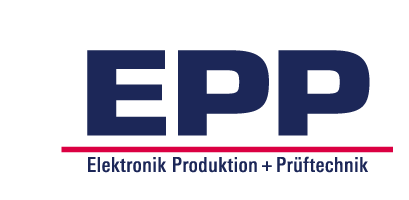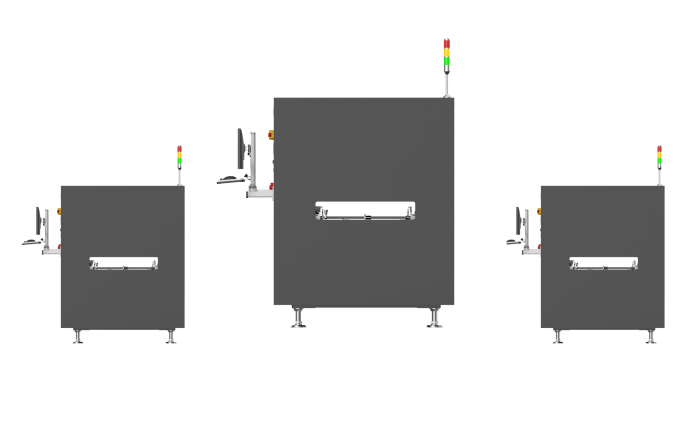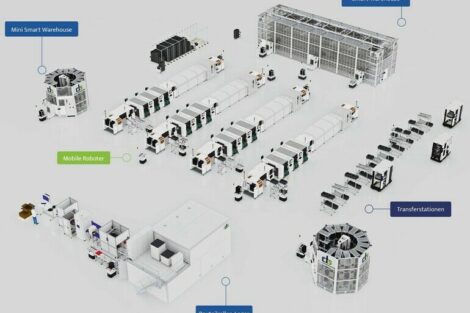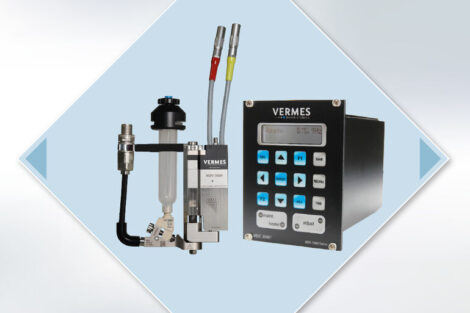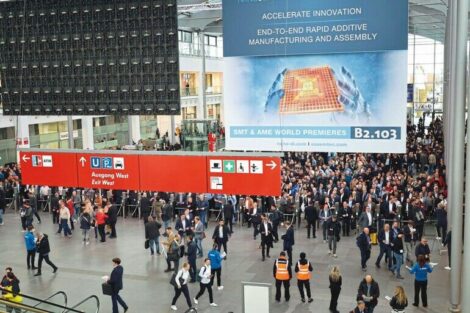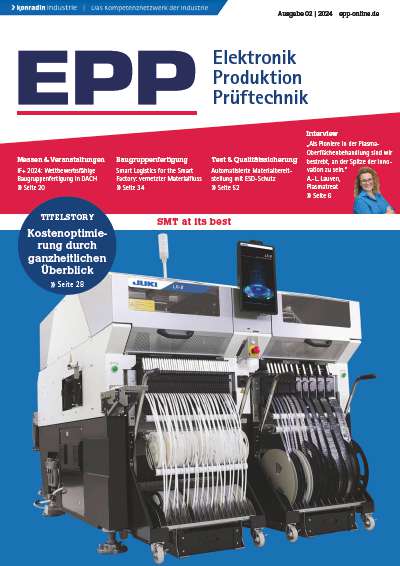It is no great secret that over the last years attendance at trade shows has been on the decline. For the UK electronics manufacturing industry, in which such shows provide a vital link between equipment manufacturer and user, this is a damaging trend. Exhibition organizers are increasingly trying new formats to combat this, some with more success than others. But why are visitors avoiding such shows?
The answer is complex. One of the overriding reasons is part of a global tendency towards an increasing work ethic. Extreme workloads and exhaustive time constraints act as substantial barriers to attendance, and busy companies, many operating on minimal margins in what is a highly competitive industry, are now reluctant to release valuable engineering and management personnel to visit exhibitions and conferences, unless they are sure of a tangible gain. As a result, most visitors now don’t attend exhibitions each twelve months as they used to, visiting perhaps once every third year instead. And there is the fact that there are fewer relevant people working in the industry due to the EMS and outsourcing boom.
A burden on companies
From an exhibitor perspective, the costs associated with trade shows are increasing. In a somewhat ironic situation. Stand build and promotional marketing have become a burden on a company’s budget in the bid to attract a decreasing number of attendees – something that the major players, who are expected and need to show a significant presence, are beginning to resent. Without the return on their substantial investment, some are starting to question the validity of exhibiting at events.
It is true to say, however, that these are the negative points in an extremely healthy and valuable environment. Trade shows are a key element in the industry. With the volume of manufactured electronics goods rising all the time, shows provide the opportunity for professionals to see equipment at first hand, and to make direct comparisons where they may not otherwise have been able to visit the vendor. Shows also provide the equipment manufacturers with a opportunity to present the latest technology and machines to a wide audience, and to make valuable contacts. People like and value trade shows, and almost no company could survive without them.
It is because of this that the whole nature of trade shows has been undergoing a continuous change over the last few years as organizers search for the ideal format to suit both exhibitors and visitors. There has recently been a noticeable global trend towards large, all-encompassing events that cater to everyone. In the US, Apex largely accommodates the major capital equipment players. Meanwhile, the coming Etronix has built on Nepcon West by adding five smaller shows to take in the whole of the manufacturing supply chain.
Which show addresses the needs in the UK?
So, what can organizers of UK events learn from these global patterns? This environment is somewhat different, if not just because it is geographically far smaller than the US as well as separate from the rest of Europe. While the likes of Productronica, SMT Nuremberg and Electronica more than adequately cover mainland requirements, none of these shows addresses the needs of companies, engineers and management personnel in the UK. Therefore, Nepcon UK is a vital part of the event calendar.
Last year’s show stemmed the decline of an ageing format by injecting some much-needed verve and excitement into the industry: it was widely perceived as a great success. By integrating shows such as Cemex and Test, and incorporating the EMS, EMC, component and PCB disciplines, Nepcon lends itself to a wider audience in the same way that Etronix does. And, in the same way that Apex draws the global players, Nepcon has drawn back several of the large equipment manufacturers that people want to see at a UK show. It is now operating from a position of strength, and the signs are that it will be successful again.
Nepcon has gone a long way in turning the tide of falling visitor numbers and disillusioned exhibitors. This is borne out by the fact that visitor numbers leveled off in 2000, and are expected to rise this year, while its exhibitor retention rate is quoted at over 80%. Research has shown that visitors like Nepcon and that the vast majority of its exhibitors are happy. This is no mean feat considering the technologically-mature state in electronics manufacturing, in which less new technology exists than, say, five years ago.
This mature market is driving the exhibition requirements of visitors and exhibitors. There is a case to be made that the UK no longer needs a large show every single year and, with some companies turning their attention to roadshows, there is an argument that smaller, regional events are the answer. Nepcon undoubtedly plays an important role in the UK electronics manufacturing industry, and should continue to do so. However, one of the major plus points of the OnBoard/ECIF show is that it attracts a very localized visitor profile. Moreover, up until recently, it offered a lower cost alternative to Nepcon. Although floor space prices were actually higher per square meter than those at the larger show, stand size was limited to shell scheme only, eliminating the costs associated with stand build. With a far more low-profile ethos, promotional campaigns were also kept to a lower level.
In addition, OnBoard also had benefits for smaller companies who had a platform to show their offerings on an equal footing with the very companies that would overwhelm them at Nepcon. Larger exhibitors, on the other hand, had a stage on which to show their entry-level equipment, as they tend to take their most advanced new technology to Nepcon. This all had obvious advantages to visitors and, as a result, attracted a very different audience to that of the Birmingham show.
The situation withNepcon and OnBoard
However, the OnBoard organizers have made the decision to abandon this format, and all the things that were good about it by announcing their intention to step into the abyss by putting an end to limited stand sizes and relocating to the expansive halls of Excel in Docklands, effectively creating a kind of ‚mini-Nepcon‘. If nothing else, it offered a high value approach to UK exhibitions – something that would seem to be conspicuous by its absence from the new format. And, there are big logistical questions over the validity as an industrial show venue due to its location.
The global trend towards larger events could perhaps be behind this initiative, which has been touted by some as bold and others as foolish. But the UK market is different from the rest of the world. When the industry is questioning the need for one large, annual electronics event, whether there is room in the UK calendar for two events, and whether exhibitors and visitors actually want and need them are pressing issues. Nepcon and OnBoard have always survived together for two reasons: they addressed different visitor profiles, and they used a different approach. It is not far off the mark to say that they complemented one another: Nepcon providing the all-encompassing showcase event with large stands, expansive seminar programs and a host of features, and OnBoard providing a lower-profile, regional option with shell scheme stands and a simple, deliberate strategy. Now the two shows seem to be competing more directly.
Trade shows are vital to the electronics industry, and they need the investment from within the industry to to pay it back with buzzing, successful events. But it may be true that the needs of the UK electronics manufacturing industry would be best served by an event calendar in which a single organizer takes into account the benefits of both show formats, and builds a program around them that provides options for everyone. Issues such as these are set to shape the UK exhibition environment over the coming months.
One thing would seem certain: somewhere along the line there is going to be a considerable shake-up. In a technologically mature, if growing, market, only those shows that evolve to meet changing market requirements will be successful. And in the UK at present, it would seem that the ultimate victor in this ongoing contest will be the show that builds on its current credibility by listening to the opinions of both exhibitors and visitors, consulting with them, and investing both time and money into pro-actively building its future around them.(Robert Simpson)
Generally, in the Spotlight section we provide information, insight and experience in an opinion-based style. Every Spotlight item therefore reflects the opinion of its author(s).Following its success at last years Nepcon UK, the 21st Century Line returns to the show with an impressive configuration. With a fresh line-up, the concept will showcase some of the best technologies available on the shop floor. The line incorporates equipment from Sanyo, Loctite/Multicore, DEK, BTU, Nutek, Purex, Machine Vision Products and ECD.
Unsere Webinar-Empfehlung
10.10.22 | 10:00 Uhr | Conformal Coating ist ein wichtiges Verfahren, um elektronische Baugruppen vor dem vorzeitigen Ausfall zu schützen. Damit bekommt der Beschichtungsprozess eine immer höhere Bedeutung. Dabei ist die Auftragsstärke ein wichtiges Qualitätskriterium. Nur eine…
Teilen:
